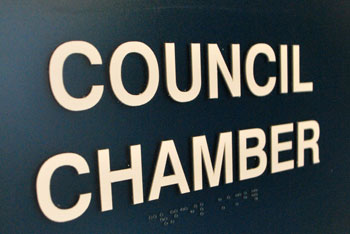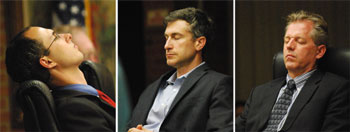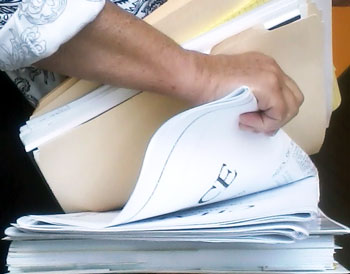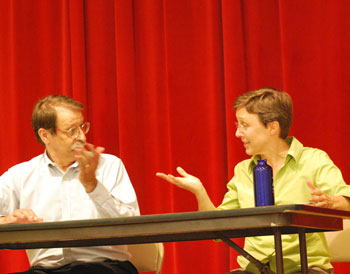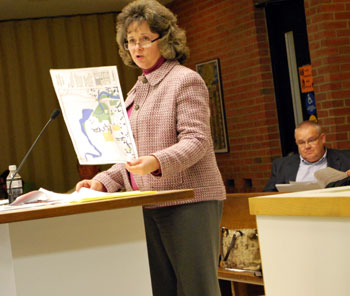Budget Debate Preview: Cops, Leaves
The main item on the Ann Arbor city council’s May 19, 2014 agenda is the adoption of the budget for the 2015 fiscal year, which starts on July 1, 2014.
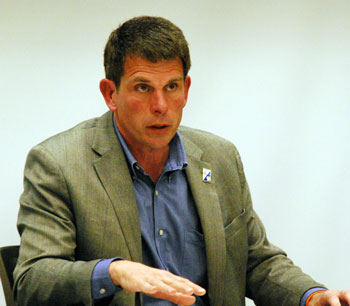
Ann Arbor city administrator Steve Powers at the council’s May 12, 2014 working session. He presented his recommended FY 2015 budget to the council in April. The council can amend that budget on May 19.
Under the city charter, the council needs to adopt the budget, with any amendments, on a seven-vote majority. If the council is not able to achieve a seven-vote majority on an amended budget, then under the city charter, the city administrator’s proposed FY 2015 budget will be adopted by default.
At the conclusion of a May 12 city council work session, Tom Crawford, the city’s chief financial officer, reminded councilmembers of the constraints they were working under when considering budget amendments. The forecast for fiscal year 2014, he told the council, is that about $1.5 million in the fund balance reserve will be used – which compares to the budgeted use of about $2.8 million of fund balance.
But Crawford cautioned that the unspent budgeted amount likely reflected a delay in that spending, not an actual savings. Crawford expected that the fund balance reserve at the end of FY 2014 would be about 10% of operating expenses.
The proposed FY 2015 budget would use $2.8 million in fund balance, Crawford told the council, which would take the fund balance down to the 7-9% range. That’s the bottom of the minimum 8-12% range that has been the council’s policy. “I say all that because I want to remind you that you’re entering a budget deliberation with pretty tight constraints,” Crawford said. So Crawford encouraged the council to find offsets to any additional expenses they wanted to incur – whether those were recurring or non-recurring expenses.
Councilmembers were asked to submit drafts of their proposed amendments to staff by the close of business on Thursday so that staff could assist in crafting the amendments. This report includes some additional background on what’s in the budget, as well as a description of 17 possible budget amendments that might be proposed.
Detail is provided on amendments in three areas: police staffing, leaf/compost collection and the local development finance authority (LDFA).
[Full Story]





